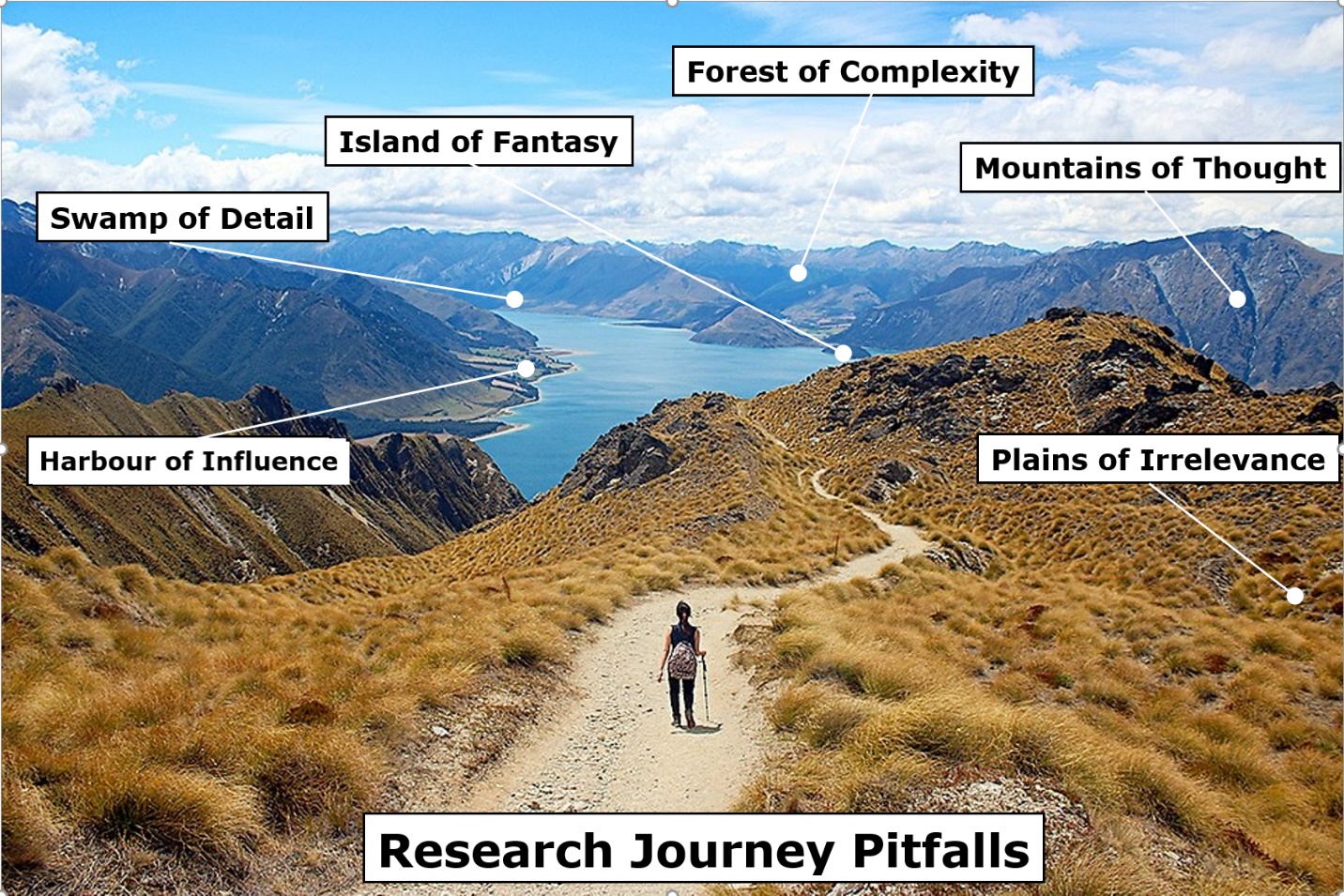
Less than 50% of PhD studies complete often due to difficulties encountered along the way. Common pitfalls of the research journey include:
- The plains of irrelevance. Researchers who go no further than the plains of irrelevance gather common flowers and muse upon them while sitting in the sunshine on a grassy knoll of no consequence. This happens if the topic chosen for the research is trivial.
- The mountains of thought. A good researcher must ascend a mountain of thought to view the terrain to be explore. Without good mental tools, one can fall into contradictions or get stuck on a ledge that points where you don’t want to go. The rarefied air can make a climber dizzy or nauseous and clouds can obscure the view. This happens if the concepts used by the research are inappropriate, unclear, contradictory, confusing or incomplete.
- The forest of complexity. When one descends to pick a research site it is easy to get lost in a forest of facts that indeed has no end. One can easily set up camp in the wrong place or wander around in circles and not find a suitable spot to settle. This happens when a researcher is unable to find a specific research question upon which to focus.
- The island of fantasy. This island is well known as its mushrooms give a state called “bias” where whatever one imagines seems true. Those who gather here return with tall tales based on imagination not reality. This happens when the evidence gathered is tainted by one’s beliefs and expectations rather than being from a source independent of oneself.
- The swamp of detail. A researcher weighed down with too much data can be sucked down and disappear in the swamp of detail. One has to distill what was found by analysis before returning, to turn a ton of data into a cup of results. This problem happens when a researcher just collects “facts” but does not analyze them.
- The harbor of influence. The harbor of influence lets researchers share their findings with others for mutual benefit. Unless one arrives here, no-one else even knows the journey has been made. Those who don’t make conclusions that relate to others fail to establish the value of their journey.
Research is complex, so for your first journey take along an advisor who has explored before.